Resources
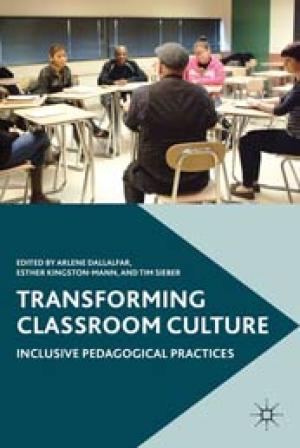
Transforming Classroom Culture is an anthology of original work authored by diverse faculty who work in a variety of New England college and university settings--private and public, racially homogeneous and diverse. The authors focus on institutional contexts that promote innovation in teaching practice, faculty identity as a resource for effective pedagogy, and dilemmas and outcomes of student-faculty engagement in the classroom. (From the Publisher)
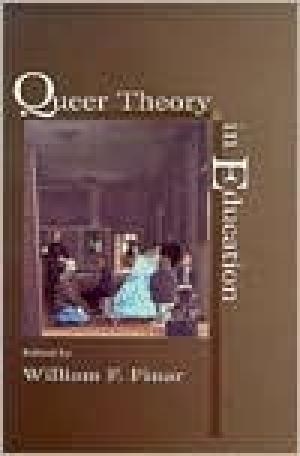
Theoretical studies in curriculum have begun to move into cultural studies--one vibrant and increasingly visible sector of which is queer theory. Queer Theory in Education brings together the most prominent and promising scholars in the field of education--primarily but not exclusively in curriculum--in the first volume on queer theory in education. In his perceptive introduction, the editor outlines queer theory as it is emerging in the field of education, its significance for all scholars and teachers, and its relation to queer theory in literacy theory and more generally, in the humanities. (From the Publisher)
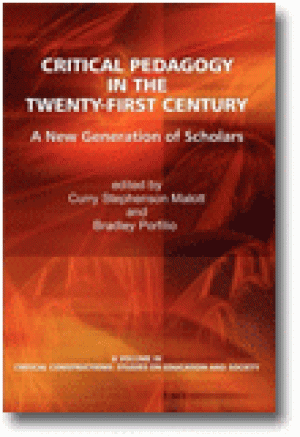
This book simultaneously provides multiple analyses of critical pedagogy in the twenty-first century while showcasing the scholarship of this new generation of critical scholar-educators. Needless to say, the writers herein represent just a small subset of a much larger movement for critical transformation and a more humane, less Eurocentric, less paternalistic, less homophobic, less patriarchical, less exploitative, and less violent world. This volume highlights the finding that rigorous critical pedagogical approaches to education, while still marginalized in many contexts, are being used in increasingly more classrooms for the benefit of student learning, contributing, however indirectly, to the larger struggle against the barbarism of industrial, neoliberal, militarized destructiveness. The challenge for critical pedagogy in the twenty-first century, from this point of view, includes contributing to the manifestation of a truly global critical pedagogy that is epistemologically democratic and against human suffering and capitalist exploitation. These rigorous, democratic, critical standards for measuring the value of our scholarship, including this volume of essays, should be the same that we use to critique and transform the larger society in which we live and work. (From the Publisher)
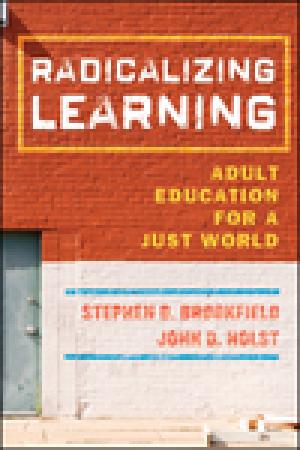
Praise for Radicalizing Learning This is a book that is so interesting that I had trouble putting it down. It is well written; there is new material; it articulates familiar concepts in such novel ways that your thought patterns get hijacked reading it. Adult learning and its processes are examined from a socialist perspective with a focus on social justice. Stephen Brookfield and John Holst have written a monumental text in the field of adult education. It is a bold, ambitious book, beautifully written and uncompromising in its social justice agenda. It is sure to become a classic in the field. This book offers new readings of the theory, politics, policy, and practice of radical adult education and learning where people's lives are understood as complex and interrelated matters. Brookfield and Holst's poetics and deeply human prose sound rebellious; the authors confront some of the main radical trends in the field of adult education including critical theory, transformative learning, and popular education. (From the Publisher)
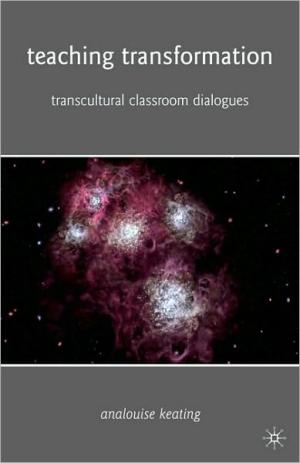
Drawing on indigenous belief systems and recent work in critical race studies and multicultural-feminist theory, Keating provides detailed step-by-step suggestions, based on her own teaching experiences, designed to anticipate students' resistance to social-justice issues and encourage them to change. She offers a holistic approach to theory and practice. (From the Publisher)
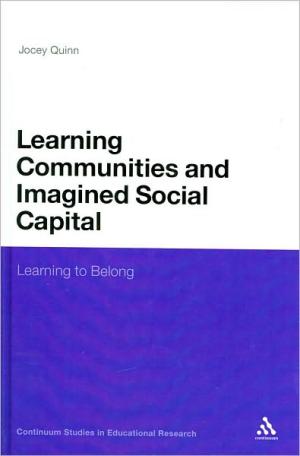
This volume critically explores themes of belonging, learning and community, drawing on a range of research studies conducted with adult learners in formal and informal contexts and employing interdisciplinary theory from education, feminist theory, cultural studies and human geography. Dominant but simplistic and regulatory ideas and practices of learning community in higher education and lifelong learning are critiqued. Instead, Jocey Quinn argues that learners gain most benefit from creating their own symbolic communities and networks, which help to produce imagined social capital. A rich variety of empirical data is used to explore and demonstrate how such imagined social capital works. (From the Publisher)
This essay explores intersections among Jesuit, Quaker, and feminist theologies and pedagogies of social justice education in order to propose and elaborate an innovative theoretical and theological framework for experiential learning in religious studies that prioritizes relationality, called erotic education. This essay then applies the relational rationale of erotic education to interpret the author's design of a service or community-based learning component in a course about contemporary U.S. Christian social justice movements, offered in both religiously-affiliated and religiously-inspired liberal arts colleges. The course case study not only chronicles the author's evolving pedagogical praxis as a feminist theologian teaching in Jesuit and Quaker institutions, but also is grounded in how the author's course embodies erotic education, that is, how specific objectives, learning practices, and assignments build and bolster relationships among students (in peer-to-peer small groups inside and outside the classroom) as well as among students and their community sites. In developing this framework and implementing it within this particular course, the author argues that erotic education emphasizes the naming and training of our existential desires for interpersonal relations in order to upbuild not only the individual but also the common good.
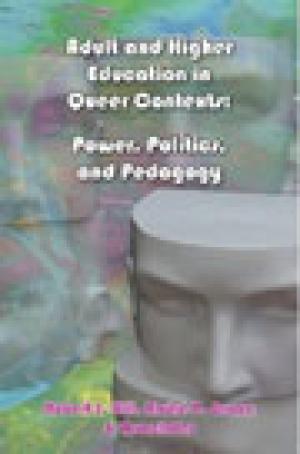
From the “Forward” by Stephen D. Brookfield, Distinguished University Professor, University of St. Thomas, Minneapolis St. Paul, Minnesota “These days it is fashionable to lament the passing of adult education’s transgressive spirit. The historical myth that exercises considerable influence on the field is that adult education used to be a radical expression of the democratic spirit, but it has been tamed, moved to the dark side, become the lapdog of workplace learning, sold its soul to the devil of professionalism in a misguided attempt to be taken seriously by more powerful branches of education. This myth is just that – a myth. I have never believed it. The radical, transgressive spirit of adult education has endured and constantly reconfigured itself, doing its best to escape and outwit those who would contain and neutralize its energy and surfacing in ways that constantly take adult e ducators by surprise. The colleagues I work with in adult and higher education and the learners I serve and study with are neither tamed nor ideologically hoodwinked. This volume of spirited commitment — defiantly hopeful, seriously playful, and placing matt ers of desire and resistance at its center — is an apt representation of the enduring radical spirit of the best of adult education.”
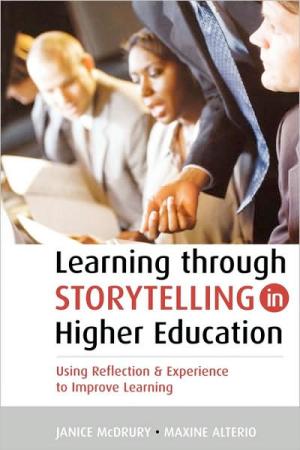
Learning through Storytelling in Higher Education: Using Reflection & Experience to Improve Learning
"Learning Through Storytelling in Higher Education" explores ways of using storytelling as a teaching and learning tool. When storytelling is formalized in meaningful ways, it can capture everyday examples of practice and turn them into an opportunity to learn - encouraging both reflection, a deeper understanding of a topic and stimulating critical thinking skills. The technique can accommodate diverse cultural, emotional and experiential incidents, and may be used in many different contexts eg formal/informal; one-on-one/group setting. The authors outline the different models of storytelling and explain how to make use of this technique and encourage a 'storytelling culture' within the workplace or in tutorial sessions. Academic yet accessible, this book provides a new perspective on learning techniques and will be a great asset to any educator looking to improve reflective practice. (From the Publisher)